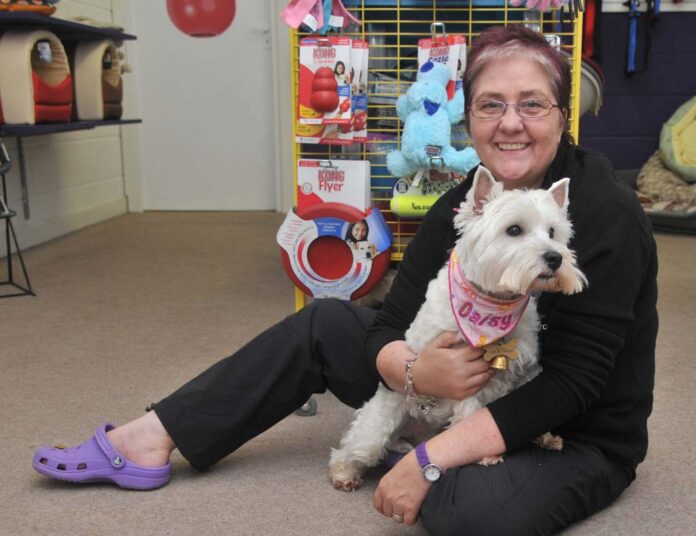
Bev Truss
Our pets need to be companion animals, well socialised with people and our homes to be of benefit to us. Dogs and cats kept outside don’t offer us the same companionship and quite often they themselves suffer by not being invited to live indoors with us. Being part of the family has beneficial effects on humans and animals alike.
Spending quality time with a dog, cat or other animal can have a positive impact on your mood and your health. Pet owners, on average, are better off than non-pet owners, especially when they have a higher-quality relationship with their pets. For some active people, that includes playing games, walking and exercising with your dog. For others, who can’t get outside, just petting your dog or cat can help you feel connected. Even talking to a budgie can help. Pets can help you in other ways, too.
A healthier heart: Your dog may make you less likely to get heart disease because dog owners walk more and have lower blood pressure than people who don’t have dogs. Studies have shown that heart attack survivors and people with serious abnormal heart rhythms, who own dogs, live longer than people with the same heart problems who don’t have pets.
They can be stress reducers: Petting your cat or dog feels good. It can lower your blood pressure, helps your body release a relaxation hormone (relaxin) and cuts down on levels of a stress hormone (cortisol)
Social interactions: Pets, especially dogs, can help you connect with other people. Going for a walk with the dog can help people meet other dog walkers and gives a chance for a chat.
People who use wheelchairs say that other people make eye contact with them more often and ask if they can be of help when they’re with their dogs.
Studies have also shown that people with pets are generally happier, more trusting and less lonely than those who don’t have pets. They also visit the doctor less often for minor problems. One reason for that may be that a pet gives you a sense of being needed. Your pet needs to be taken care of, so you feel wanted and, of course, your pet won’t argue back and won’t mind if you talk away all day to it.
Having a pet indoors is a boost to your baby’s immune system, although introducing your baby to a cat or dog has to start early, ideally before a baby is six months old. Babies with dogs or cats at home have fewer colds and ear infections during their first year than babies living in pet-free homes. Research has linked the presence of pets with a lower risk of allergies, while a recent study in mice found that exposure to household dust from homes with a dog prevented infection with a common respiratory virus that is thought to increase the risk of childhood asthma.
Pets, such as cats and dogs, can also be a social support for autistic children. Children tend to relate better to their classmates who have autism when pets are in the classroom, one study in the US has shown. Animals change the classroom environment and help to integrate those who are a little less typical. Once the children get involved with animals, they view each other more positively and work together better.
All of the studies and research have shown that pets can definitely help both adults and children in many ways, with physical and mental health, as well as the more common helpers in working dogs and assistance dogs. Cats also help lower blood pressure when stroking the cat. Of course, this is a well socialised domestic cat; your blood pressure might be a bit under pressure if you tried to stroke a feral cat.
A native of Ennis, Colin McGann has been editor of The Clare Champion since August 2020. Former editor of The Clare People, he is a journalism and communications graduate of Dublin Institute of Technology.



